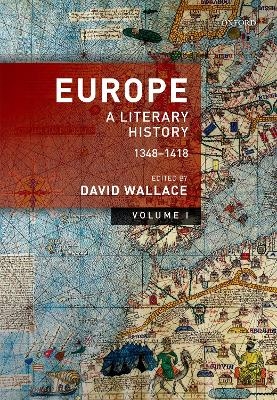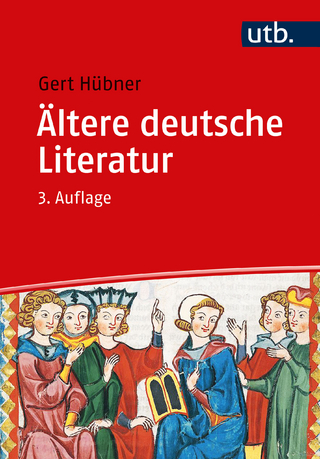
Europe
Oxford University Press (Verlag)
978-0-19-887064-7 (ISBN)
This collaborative two-volume literary history of Europe, the first yet attempted, unfolds through ten sequences of places linked by trade, travel, topography, language, pilgrimage, alliance, disease, and artistic exchange. The period covered, 1348-1418, provides deep context for understanding current developments in Europe, particularly as initiated by the destruction and disasters of World War II. We begin with the greatest of all European catastrophes: the 1348 bubonic plague, which killed one person in three. Literary cultures helped speed recovery from this unprecedented 'ground zero' experience, providing solace, distraction, and new ideals to live by. Questions of where Europe begins and ends, then as now, and disputes over whom truly 'belongs' on European soil are explored, if not solved, through writing. A war that would last for a century convulsed much of western Europe. Divisions between Orthodox and Roman Catholic Christianities endured, and in 1378 the West divided again between popes of Avignon and Rome. Arabic literary cultures linked Fes and Granada to Jerusalem and Damascus; Persian and Turkish writings began to flourish south and west of Constantinople; Jewish intellectuals treasured Arabic texts as well as Hebrew writings; Armenian colophons proved unique. From 1414-18 western nations gathered to heal their papal schism while also exchanging literary, humanist, and musical ideas; visitors from the East hoped for commitment to wider European peace. Freed from nation state historiography, as bequeathed by the nineteenth century, these 82 chapters freshly assess the free movement of European literature in all its variety, local peculiarity, and regenerative power.
David Wallace, who studied at York (BA), Perugia, and Cambridge (Ph.D.), has been Judith Rodin Professor of English, University of Pennsylvania, since 1996, with visiting positions at Jerusalem, London, Leipzig, Melbourne, and Princeton. He has travelled and lectured widely across Europe, and also north America, Australia, and Japan, and has made a series of radio documentaries for the BBC. He is the author or editor of ten books, including Premodern Places and The Cambridge History of Medieval English Literature.
Volume I
General Introduction
I: Paris to Béarn
Introduction
Paris
Chaalis
Valenciennes (Hainault)
Reims
Lusignan
Dijon, Burgundy
Savoy and the Marquisate of Saluces
Toulouse
Béarn
II: Calais to London
Introduction
Calais
Canterbury
Oxford
Berkeley Castle
Chester and Cheshire
York and Yorkshire
Lichfield
Leicester
Lynn, Walsingham, Norwich
London, Southwark, Westminster
III: St Andrews to Finistère
Introduction
St Andrews and Aberdeen
Kirkwall, Orkney
Iceland
Dublin
Lough Derg
Lecan and Ballymote
Ceredigion: Strata Florida and Llanbadarn Fawr
Glasney College, Penryn, Cornwall
Finistère
IV: Basel to Danzig
Introduction
Basel
Strasbourg
Cologne
Brussels
Bruges
The Hague
Deventer and Zwolle
Lübeck
Vadstena
Turku
Danzig
V: Avignon to Naples
Introduction
Avignon
Lombardy: Milan and Pavia
Florence
Siena
Rome
Naples
| Erscheinungsdatum | 23.03.2021 |
|---|---|
| Zusatzinfo | 93 black-and-white halftones |
| Verlagsort | Oxford |
| Sprache | englisch |
| Maße | 175 x 245 mm |
| Gewicht | 1498 g |
| Themenwelt | Geschichte ► Allgemeine Geschichte ► Mittelalter |
| Geisteswissenschaften ► Sprach- / Literaturwissenschaft ► Anglistik / Amerikanistik | |
| Geisteswissenschaften ► Sprach- / Literaturwissenschaft ► Literaturwissenschaft | |
| ISBN-10 | 0-19-887064-7 / 0198870647 |
| ISBN-13 | 978-0-19-887064-7 / 9780198870647 |
| Zustand | Neuware |
| Haben Sie eine Frage zum Produkt? |
aus dem Bereich


